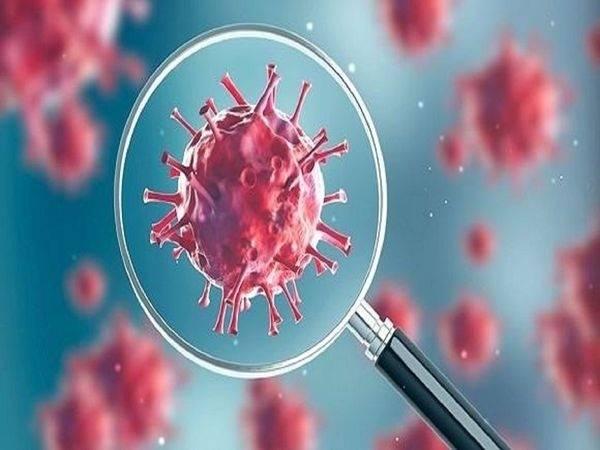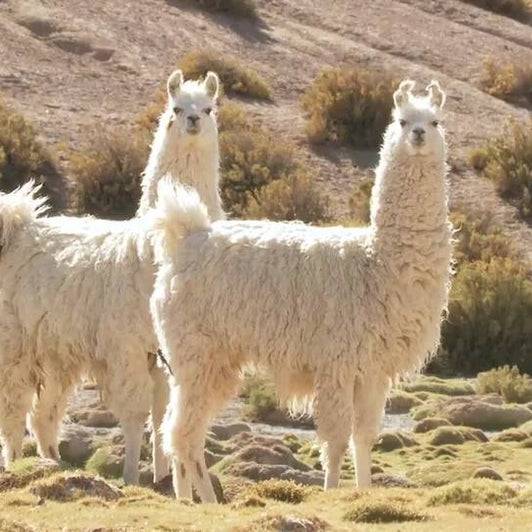The team generated the nanobodies by injecting a portion of the SARS-CoV-2 spike protein into a llama called Fifi…reports Asian Lite News.
A unique type of tiny antibody produced by llamas — a domesticated South American camelid — could provide a new frontline treatment against Covid-19 that can be taken by patients as a simple nasal spray, instead of an injection.
Scientists at the Rosalind Franklin Institute in the UK have, in a new study, shown that nanobodies — a smaller, simple form of antibody generated by llamas and camels — can effectively target the SARS-CoV-2 virus that causes Covid-19.
They found that short chains of the molecules, which can be produced in large quantities in the laboratory, significantly reduced signs of the Covid-19 disease when administered to infected animal models.
The results, published in the journal Nature Communication, are the first step towards developing a new type of treatment against Covid-19, as the nanobodies, which bind tightly to the SARS-CoV-2 virus, are cheaper and easier to produce than human antibodies and don’t need to be stored in cold storage facilities.
The research has “significant potential for both the prevention and treatment of Covid-19”, said Public Health England, adding that the nanobodies “are among the most effective SARS-CoV-2 neutralising agents we have ever tested.”
“Nanobodies have a number of advantages over human antibodies. They are cheaper to produce and can be delivered directly to the airways through a nebuliser or nasal spray, so can be self-administered at home rather than needing an injection. This could have benefits in terms of ease of use by patients but it also gets the treatment directly to the site of infection in the respiratory tract,” said lead author Professor Ray Owens, head of protein production at the Institute.
The team generated the nanobodies by injecting a portion of the SARS-CoV-2 spike protein into a llama called Fifi.
While the injections did not make Fifi sick, it triggered her immune system to fight off the virus protein by generating nanobodies against it. A small blood sample was then taken from the llama and the researchers were able to purify four nanobodies capable of binding to the Covid-19 virus.

The nanobodies were then combined together into chains of three to increase their ability to bind to the virus. These were then produced in cells in the laboratory.
The team found the three nanobody chains were able to neutralise both the original variants of the Covid-19 virus and the Alpha variant that was first identified in the UK. A fourth nanobody chain was able to neutralise the Beta variant first identified in South Africa.
One of the nanobody chains administered to Covid-infected hamsters lowered the disease and viral load in the animals more than untreated animals.
WHO chief thanks India for resuming Covid vaccine export
The World Health Organisation on Wednesday appreciated India’s decision to export the vaccines under Vaccine Maitri to COVAX.
The Director-General of WHO Tedros Adhanom Ghebreyesus said that it is an important development in support of reaching the 40 per cent vaccination target in all countries by the end of this year.
The World Health Organisation (WHO) Director General has thanked Union Health Minister Mansukh Mandaviya for resuming shipments of vaccines against the Covid-19 to the global platform COVAX from October.
Health Minister on Monday had announced that India will resume the vaccine export to the global platform COVAX starting from October. He said, only excess supplies would qualify for export. “We will help other countries and fulfil our responsibility towards COVAX,” he said on Monday.
Terming the decision an important development, the WHO Director said on social media, “Thank you Health Minister @mansukhmandviya for announcing #India will resume crucial #COVID19 vaccine shipments to #COVAX in October. This is an important development in support of reaching the 40 per cent vaccination target in all countries by the end of the year”.
India stopped vaccine exports in the last week of April amid second Covid surge to jab its own population. However, prior to the export ban, India had either sold or donated 66 million doses to nearly 100 countries.
While announcing to resume the vaccine exports under Vaccine Maitri program, the minister Mandaviya said that the surplus supply of vaccines will be used to fulfill the commitment towards the world for the collective fight against Covid-19.
COVAX is co-led by Gavi, the Coalition for Epidemic Preparedness Innovations (CEPI) and WHO. While talking about the production of the vaccine in coming months, Mandaviya said that more than 30 crore doses will be produced in October and more than 100 crores in the coming quarter vaccines will be produced.
ALSO READ-India to resume Covid-19 vaccine exports in October

